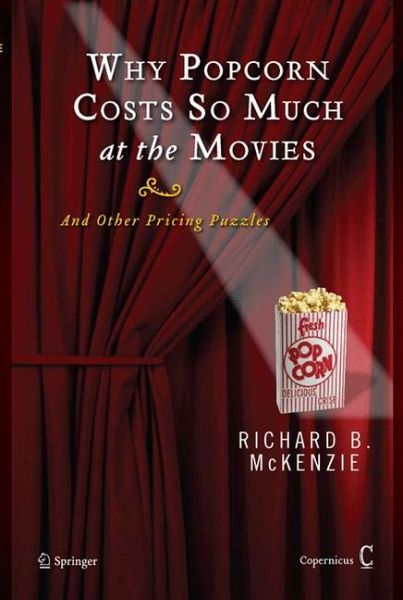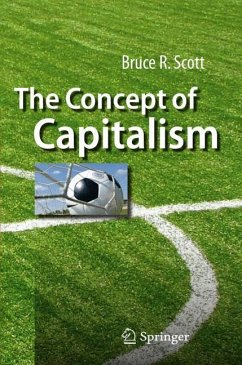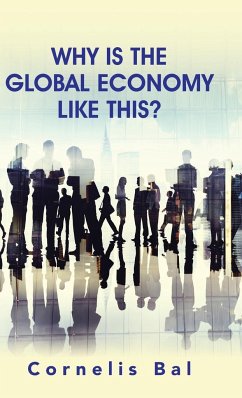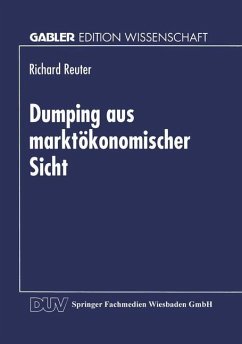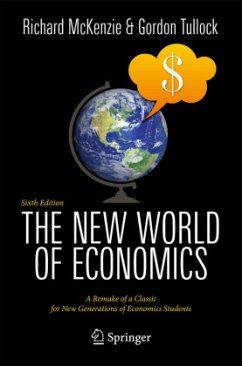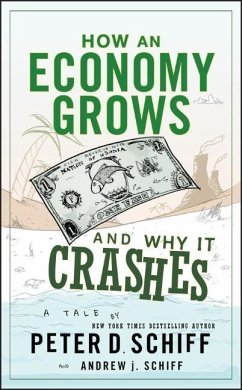So Much At the Movies, And Other Pricing Puzzles makes pricing theory interesting!" (Hugh Hewitt, June, 2008)
"Richard McKenzie's book, Why Popcorn Costs So Much at the Movies, and other pricing puzzles, is out. ... It looks like a good microeconomics primer to me - a nice mix of thoughtful price theory and contemporary examples." (The Undercover Economist, June, 2008)
"In this book, McKenzie covers an eclectic range of topics, looking at strange pricing phenomena and their consequences. ... this will be an interesting read." (Andy Ridgway, BBC Focus, Summer, 2008)
"The first place/time I heard of this book was on the EconTalk podcast ... . Dr. Tyler Cowen recommends the book as well. ... provides a solid grounding on the 'why' of prices. Why are they so important, why must we get them 'right?' ... The treatment of 'free' items such as ink-jet printers was excellent, and possibly worth the price of the book itself. ... In short, a solid book that I enjoyed more than I expected to." (Amateur Economist, August, 2008)
"This is an interesting book and a good read. The level is not technical and is similar to some of the recent crop of popular economics writings ... . What differentiatesthis book is its ideology: markets and people are rational." (Huw Dixon, Times Higher Education, July, 2008)
"McKenzie uses clear economic reasoning to explain many aspects of pricing that are otherwise puzzling. He even uses reasoning about prices to show that the federal government's rules for getting on airplanes have caused more deaths than the terrorists ... . ... He uses economics to analyze the issues deeply and presents a more balanced view of the incentives and motivations of sellers. ... McKenzie's Popcorn is a welcome antidote to Freakonomics." (David R. Henderson, Regulation, Vol. 31 (3), Fall, 2008)
"In his most recent book, entitled `Why Popcorn Cost So Much at the Movies, and Other Pricing Puzzles,' ... Richard McKenzie explains this conundrum as well as other pricing mysteries. ... Overall I enjoyed this book ... . Mckenzie's writing style graciously makes this book effortless to read and comprehend. ... I would recommend this book to anyone seeking to gain a greater understanding of how basic economics principals can accurately explain pricing enigmas in our everyday lives." (Keegan Hall's Infamous Blog, December, 2008)
"The book Why Popcorn Costs So Much at the Movies is an academic book wrapped in a populist title. It provides insight into a variety of pricing mysteries ... . it is useful for anyone involved in pricing a product. ... The book touches upon social issues and the unintended consequences of pricing. ... With a variety of topics, it has something for students and professionals ... . " (The Viodi View, January, 2009)
"Written by an economist for smart people, Popcorns unpacks pricing puzzles taken from real life, from the age-old debate over ending a price in a 9 to charging $10 for a bucket of movie theater popcorn. ... To an entrepreneur facing the mystery of setting prices, this book contains a wealth of important ideas." (Inc, January, 2009)
"Pricing makes the economic go' round. ...Professor McKenzie does a good job of tackling this complexity head on, and anyone whose job is remotely connected to pricing will benefit from reading this book. Consumers who are curious about the prices they pay ... and how they got that way are likely to enjoy this book as well. ... McKenzie's writing is engaging and readable. ... this is a must read book for anyone who deals with pricing." (The Customer Knowledge Advantage, May, 2009)
"Of all the good books I've read recently, the best so far is probably Why Popcorn Costs So Much at the Movies and Other Pricing Puzzles by Richard McKenzie. ... The book looks at a large number of pricing puzzles and ... provide rational explanations for why they might be the case. ... McKenzie ... illustrate the possible ways to resolve these puzzles. ... I recommend this book to anyone and everyone who is ... interested in understanding economics as the science of making decisions." (Diversified Interests, July, 2009)
"This book illustrates pricing puzzles ... and provides alternative reasoning based on sources in either rational (e. g. opportunity cost, experience/network goods, market/information uniformity, sales prediction) or non-rational (e. g. regulation, politics, psychology) economics. Presented as a sequence of puzzles and discussions/answers, this is a thought provoking book. I highly recommend." (Raresaint, March, 2010)
